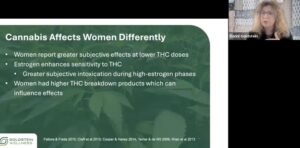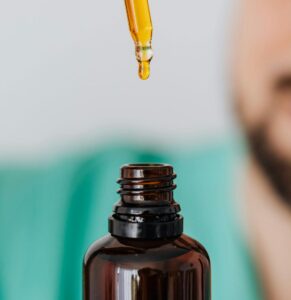Alcohol is one of the most widely consumed substances in the world. For many, drinking is part of social life, yet the consequences of overuse include liver damage, increased risk of chronic disease, and a staggering toll on mental health and relationships. As researchers look for safer strategies to support recovery and reduce harm, cannabidiol (CBD) has emerged as a promising ally.
CBD, a non-intoxicating compound from the cannabis plant, has gained attention for its potential therapeutic benefits, which include reducing anxiety and supporting better sleep. Now, new research suggests CBD may also support individuals struggling with alcohol use disorder (AUD) and play a role in harm reduction.
CBD and the Liver: A Potential Protective Role
Chronic alcohol use is toxic to the liver, often leading to fatty liver disease, inflammation, and cirrhosis. Interestingly, preclinical studies suggest that CBD may offer protective effects against alcohol-induced liver injury.
CBD has shown in studies to reduce oxidative stress and inflammation, two of the primary drivers of liver damage from alcohol consumption. While more human research is needed, these findings raise an important possibility: CBD may help buffer the liver against some of the toxic effects of alcohol and may even prevent neuronal loss, potentially supporting overall health in people at risk.
CBD and Alcohol Cravings
Beyond physical damage, one of the most challenging aspects of AUD is the cycle of craving and relapse. Preliminary evidence indicates that CBD may help here, too.
Research has shown that CBD interacts with the brain’s endocannabinoid system (ECS), which plays a role in regulating stress, reward, and addictive behaviors. In rodent models, CBD reduced alcohol-seeking behavior and relapse triggered by stress or environmental cues.
Though human trials are still limited, early clinical studies suggest that CBD’s ability to reduce anxiety and improve sleep may indirectly help individuals manage alcohol cravings and maintain recovery.
Harm Reduction: Alcohol, Cannabis, and the Middle Ground
Harm reduction is the idea of minimizing risks rather than insisting on complete abstinence. For some, cannabis is used as a substitute for alcohol, with research showing people may reduce alcohol intake when using cannabis.
However, this raises a cautionary note for a subset of individuals as substituting alcohol with cannabis could increase the risk of developing cannabis use disorder (CUD). Here, CBD may again serve as a unique tool. Unlike THC, CBD is non-intoxicating and has been investigated as a possible treatment for substance use disorders because of its calming and anti-craving properties.
This suggests CBD could be a “middle ground” in harm reduction strategies as a way to help reduce alcohol consumption without swapping one intoxicating substance for another.
What This Means for You
The research on CBD, alcohol, and addiction is still in its early stages but the results so far are compelling. CBD may:
- Support liver health by reducing oxidative stress and inflammation.
- Help reduce alcohol cravings and relapse risk.
- Serve as part of a harm reduction strategy without increasing intoxication risks.
If you or someone you love is curious about exploring CBD as part of an alcohol harm reduction or recovery strategy, you don’t have to navigate it alone.
Connect with Us
At Realm of Caring, our mission is to empower you with unbiased, research-backed information. Our care team offers free 1:1 support to help you:
- Find safe, high-quality CBD products.
- Learn how to discuss CBD use with your doctor.
- Get answers to your research questions.
Reach out today to take the next step toward a healthier relationship with wellness.





